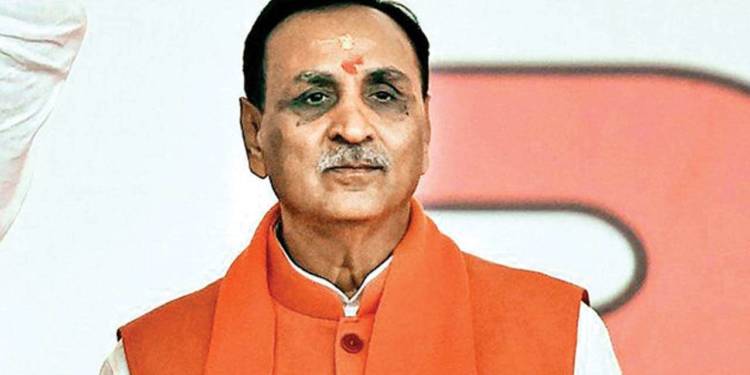In what can only be described as a shocking and reprehensible move on the part of the Gujarat government, it has slashed traffic violation fines provided for under the Motor Vehicles (Amendment) Act, 2019 passed by the Parliament recently. The amendment was passed recently and rules with hefty fines came into effect from September 1, although, some states like West Bengal, Punjab, Rajasthan and Madhya Pradesh pushed back the date of implementation. These states have to implement the amendment (probably with some modifications) because Motor vehicle laws fall in the concurrent list and center can define the power of states.
The Gujarat Chief Minister, Vijay Rupani announced the reduction in the amount of fines stipulated under the new legislation. He said that the amounts in the form of fines, provided for under the amended Motor Vehicles Act is the maximum amount suggested and the state government had reduced them after detailed deliberations over the issue. The amended Act provides a fine of Rs. 1,000 for riding a two-wheeler without wearing a helmet. However, the Gujarat Government has brought down the quantum of this fine to Rs. 500. The case with not wearing a seat belt while driving a four-wheeler is also similar. Similarly, a drastic reduction has been made in case of driving without a license. In case of two-wheelers, it has been brought down from Rs. 5,000 to Rs. 2,000, while it has been slashed to Rs. 3,000 in case or four wheelers.
This move does not seem to augur well when it comes to road safety within the state. Moreover, it does not set a good precedent for other states which have not yet implemented the revamped law in this sector. Some of the states have already shown reluctance to implement the amended Motor Vehicles Act. It must be kept in mind that by enacting the amendment in the Motor Vehicles law, the Parliament does not intend to oppress the public at large. It only seeks to improve road safety across the country. The hike in fines is only intended to bring about a behavioral change among the general citizens and to improve road safety. The new traffic rules will make the roads safer for commuters, the long queues will get shortened, and bring behavioral change among the citizens. Cowering down to backlash by a few rogue and undisciplined elements that rightly fall prey to the rules, is not a precedent the government of Gujarat should be setting, as it weakens the position of other states that are diligently enforcing the law to drive a revolution in Indian road safety.
It is true that some critics have made absurd arguments in order to criticise the amendment in Motor Vehicles Act. Some have even tried misleading the ordinary citizens in order to create a false impression about the newly enacted amendment. However, when it comes to a critical issue like road safety and convenience of commuters, bending to the populist sentiment serves no real purpose. This only weakens the stand taken by the centre and those who stand for road safety. It is all the more shocking because it comes from a state like Gujarat which has never shied away from quickly adopting progressive ideas. This is why the Gujarat government’s move to slash traffic violation fines is clearly a regressive step and a bad precedent for the rest of the states.




























